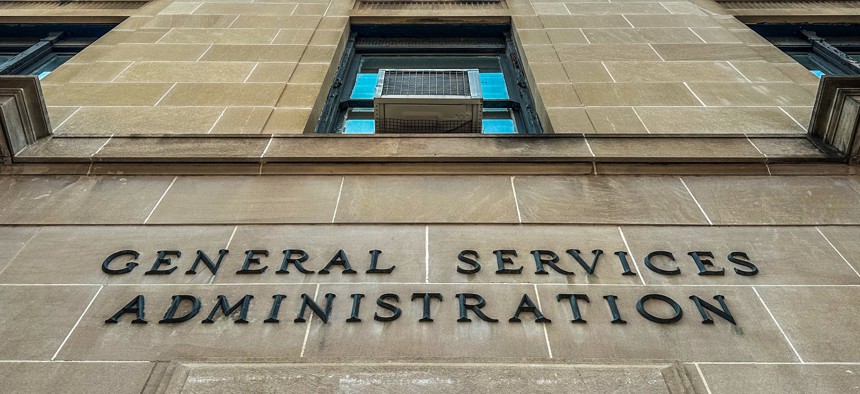Industry awaits significant disruption as GSA works on contract takeovers

Gettyimages.com/ Douglas Rissing
Contractors are watching for impacts to competition, market access and innovation.
No matter what your opinion is, government contractors and their agency counterparts should brace themselves for significant disruption as the General Services Administration moves to absorb nearly all responsibility for acquiring “common goods and services.”
As we reported on Wednesday, GSA is developing plans to take over the management of government-wide contract vehicles at NASA and the National Institutes of Health.
That plan is part of GSA's effort to take on the buying of commercial IT products and services for all government. Sources said the consolidation efforts are initially focusing on civilian agencies and GSA is not looking at defense acquisitions yet.
One source described it as a continuing evolution of the category management framework begun during the Obama administration, with roots going back into the George W. Bush administration.
GSA officials have not made a final decision, and one source cautioned the moves are not a done deal until the Office of Management and Budget signs off on them.
But many in industry have been expecting more aggressive moves like this by GSA to consolidate the acquisition of IT goods and services.
Sources we spoke to see positives and negatives to these moves. On the positive side, there is a lot of duplication in contracts.
Absorbing the CIO-SP contract into GSA also is seen by one source as a reasonable move, given all of the protest issues NIH's IT Acquisition and Assessment Center has had in getting CIO-SP4 open for business.
CIO-SP4 has been racked with protests and is NITAAC is working on another corrective action that the U.S. Court of Federal Claims needs to approve.
“That one is never going to see the light of day,” one source said.
As with any large change in acquisition, this one could pose potential risks to the system.
One source worries about a potential lack of innovation. When agencies have choices on how they buy, contract owners have to look new ways to win over those agency buyers.
GSA saw this after it awarded the first Alliant contract in 2008. A different part of GSA developed OASIS and aspects of that procurement were groundbreaking and were copied by others, that source said.
“If there is too much consolidation, vehicle competition will suffer and access to the market could be constrained — both of those factors have real value in the marketplace,” said Stan Soloway, former CEO and president of the Professional Services Council.
“Everything is going to go through one conduit, and contracting officers are creatures of habit, and they have their favorites and their go-to’s,” said Guy Timberlake, CEO of the American Small Business Coalition.
Several sources expressed some surprise that GSA is looking to take over SEWP.
NASA is working to award its sixth iteration of the vehicle, which records billions of dollars in order volume each year and is recognized for its customer service.
“GSA has long wanted to own all the GWACs specifically SEWP,” Timberlake said. “None of this is new.”
But even if this is not new, Timberlake does not see the move as a good idea.
“We are taking on an ill-planned and ill-prepared transformation that is trying to fix something that’s never been broken,” Timberlake said.
Soloway is concerned GSA lacks the people and resources it needs to manage the volume of work.
“For buys of any complexity, it is crucial that the buyers fully understand the customer mission and needs,” Soloway said. “What is the plan for addressing that? How many people will GSA be able to bring over?”
GSA officials have said these moves could save tens of billions of dollars, but Soloway said consolidating contracts does not in itself save much,
“The savings in rationalizing pricing and requirements, eliminating non-value-added processes, great use of technology and other components of smart program and contract management,” Soloway said.
Timberlake was blunt in his assessment: “I don’t see any benefit. All I see is that this is going to raise costs.”
One former GSA official said industry should keep in mind that this kind of change will take time and is extremely complicated. GSA is still working on a restructuring it started two years ago to move away from a regionalized setup and toward a more centralized approach.
“That’s just one agency, now imagine that across the entire government,” the former official said.
But the Trump administration also knows it is working with a limited window of opportunity.
“I think they want to get enough momentum going so that it will be hard to reverse,” the former official added.
Another industry source also expressed skepticism about how quickly these changes will come.
“It’s not as easy and straightforward as they seem to think,” the source said. “There isn’t a lot of room for error on GSA’s part – agencies will not be and cannot afford to be patient.”


